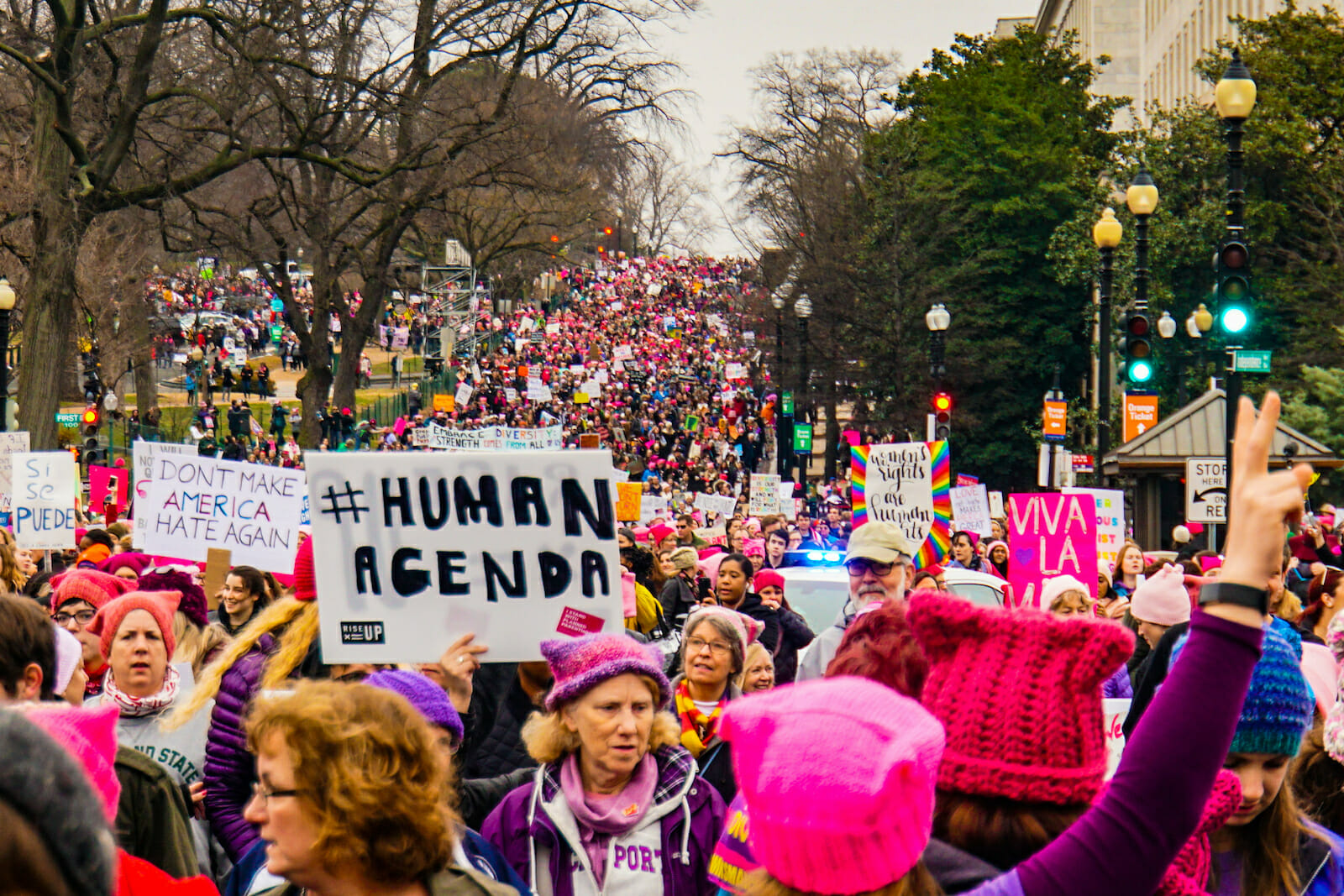
Culture
To Have Progress in Gender Equality, We Still Need to Talk about Masculinity
You might think that as a gender advocate and practitioner who also happens to be a woman, I would discuss my own gender and empowering them. 85% of the time I am doing exactly that but I realize that I am forgetting half of my audience. If I’m leaving men out of the conversation, I am leaving the entire conversation on gender equality behind. Masculinity, like so many other things, should not be a taboo.
I think men deserve better and the space to talk about what it means to become a better man both for himself and for the people around him. Mostly it is because I think that things need to change. As women, we are having our own revolution. From the feminist manifesto to the #MeToo movement, to the Women’s March, our “girl gang” and “girl tribe,” we found our sense of direction relating to gender equality through these revolutions. But I think that in order to find that sense of direction and revolution, we must first ask for guidance.
Imagine being in a car with a man (be it your brother, boyfriend, dad, friend, etc). Suddenly, you got lost along the way and could not rely on the power of Google Maps or your GPS. What is one of the most emasculating thing that a man will do in such a situation? The answer is to ask for directions. Imagine this. Boys are taught not to ask questions because asking for help would suggest a “lack of leadership,” instead of being an acute sign of it. If a man cannot ask for directions to the closest gas station, how are they supposed to ask directions about how to be men?
The consequences of this “lone-wolf masculine ideal” have repercussions beyond shouting with each other in the car or being late to brunch. This means that men are less likely to communicate with their partners, their doctors, and even their health professionals. One study shows that when men do visit the hospital, they leave earlier than women. These are not biological differences because how often you think you need to see the doctor is purely rooted in learned behaviour. Men have inferred that asking for advice is not for them. The way we raise boys and men is a recipe for disaster, and a disaster it has become.
“Idealized masculinity” turns men into a threat to women. Men’s violence against women is a worldwide epidemic. Just in Indonesia alone, BPS reported that 1 out of 3 women experience sexual violence and harassment in their lifetime. Nearly half of all women who end up murdered are killed by a current or romantic partner, where 98% of those partners are male.
I grew up in a Batak family. A racial patrilineal ethnic group in Indonesia that puts men in a higher position to women socio-economically and politically. This is where my analysis on gender and equality stems from. My initial exposure to the “patriarchy” was not the bully in elementary school or the men that I dated, but instead, it comes from my own ancestral tribe.
The feminist movement didn’t tell women that we all have to be high-powered CEOs in a big tech company or eventually land themselves on the Forbes 30 Under 30 list. Feminism also didn’t tell women you all have to be the best mom that cooks brownies for her kids and family every Friday night. Feminism told women that they could choose one of those things or that they could be both of those things, or that they can be neither of those things. But these conversations are difficult.
As a gender and youth activist with several experiences in the grassroots movements, I have spent a great deal of my time talking and re-thinking my role as a woman with and from other women. Society plays a lot of roles in my analysis, and so does talking with my fellow women. This allows me to see the way that women view intersectional gender equality movement in a way that goes deeper beyond criticizing the policies and politics and to seek a greater meaning from ourselves and analyzing our own emotions.
I think that men need to do this too. I think that they should start asking the question “Where is the feminist movement but for men?” I am a big fan of allowing men to assemble in their male spaces or “bro-nights” (whatever they may call it), and start to ask questions that are self-introspective of their gender identity which feeds into their action. Questions such as “what is so hard about being a man?” or “does this ideal benefit myself or my community?” “is my actions justified?” is a good starting point. I think that we should start to allow men to reclaim those male spaces for a better and greater cause. And maybe we can start to see and achieve a steady progress towards gender equality.
What was hard about being a man is not women. It was actually other men. Men receive the pressure to perform their masculinity, not in front of women, but actually in front of men. And this is actually a phenomenon that is supported by a theory from the American Psychological Association (APA) called “precarious masculinity.” This theory basically states that as women our femininity is assumed, so we can bend gender norms a little bit. Men, however, do not have that luxury. They say: “real men don’t wear dresses” and “real men don’t wear makeup” or that “real men don’t act like women.” Thus, this becomes constraining for men.
Just like what we see in any romantic relationships, we tend to see the feminine and masculine ideals of the two partners. However, what happens when the man cries? We tend to see that men are more “feminine” and now, as women, we have to deal with two gender notions; their masculinity and the scary part- their “feminine” side.
“Masculinity is like a swiss-army knife”
One of the questions I asked men when researching on the ideals of masculinity is: “What is hard about being a man?” Most of them paused and froze when I asked that question. From this, you could tell that not only did they feel uncomfortable talking about it, they also do not truly have the answer. So maybe men have to start asking that very question about the “idealized masculinity” that has been entrenched in their lives.
The best image that I could come up with to describe masculinity and the theory is a “swiss-army knife.” There is a simple solution to a very complicated problem which is that men have to talk to each other. Masculinity is an illusion that is flawed. But the way that men talked to each other is also problematic. This is because seeing gender roles is like the “swiss-army knife.” We know that the swiss-army knives have a lot of different types of tools on one chain. Each tool is required for different purposes and the effectiveness inside a single keychain. Questioning and learning about different gender roles is like adding more to the knife. If you only have one tool, it does not serve the purpose. If you have a tool that has a similar purpose with another, it will not be beneficial for your use. The conversation that we should be having when talking about gender is about freedom. Where everyone can access their full potential as human beings, without being constrained by the discriminatory roles in place. Helping men, and helping women.
I want to make it clear that talking about masculinity is not a distraction from the problems of women- rather, it is the most effective way to properly address them. The biggest lie is that the fight to address male suffering is separate or at odds with the battle to liberate women. We all experience gender. We are all limited by oppressive gender stereotypes. We must transcend the myth of the gender war. This is because we are all on the same team.

